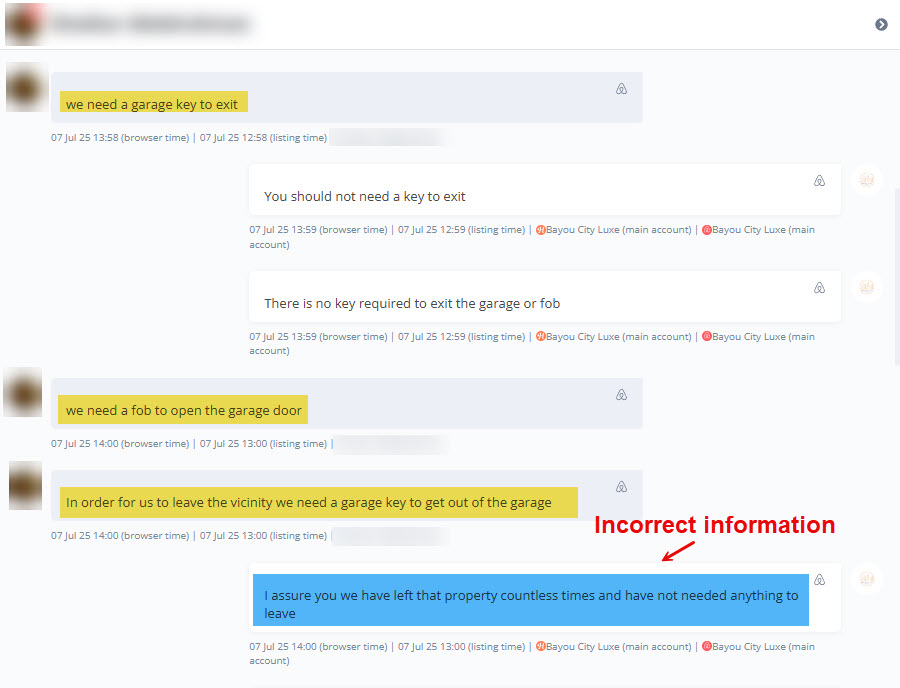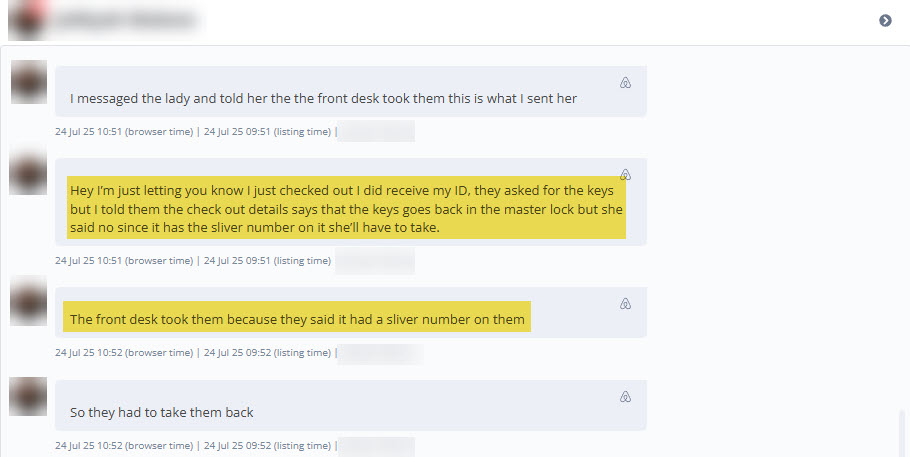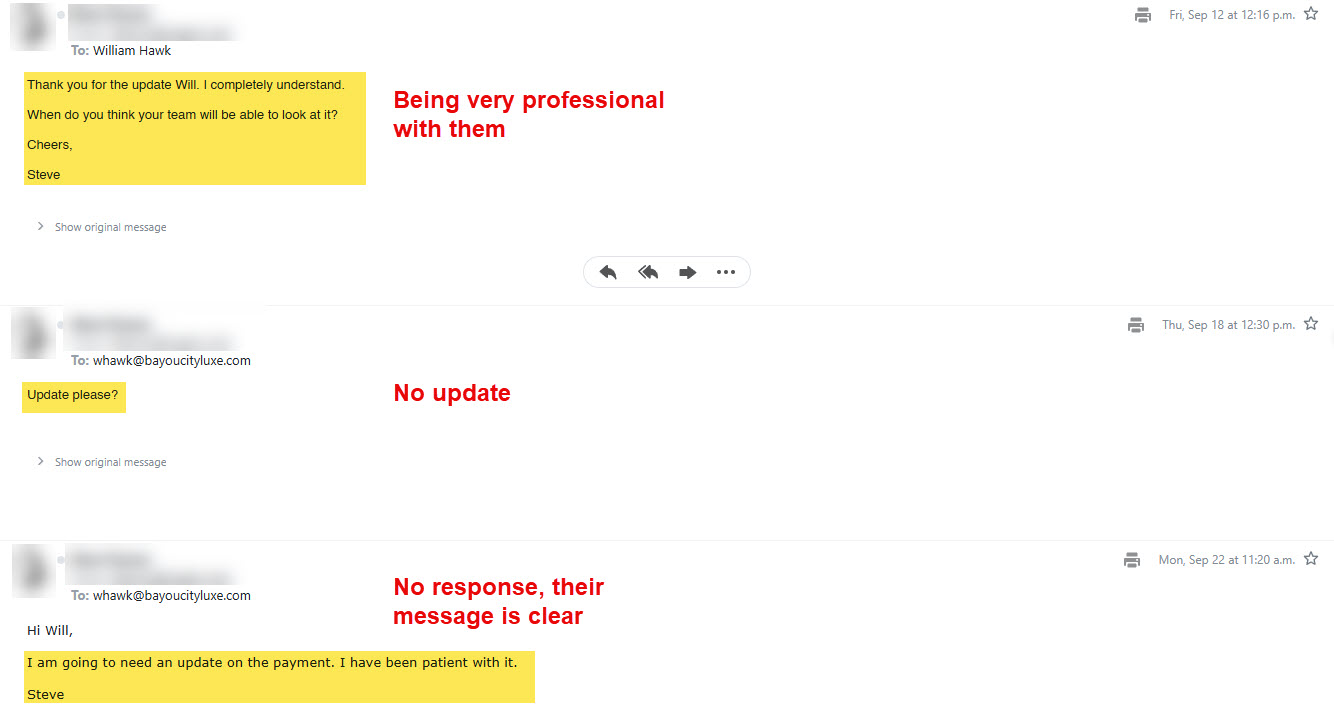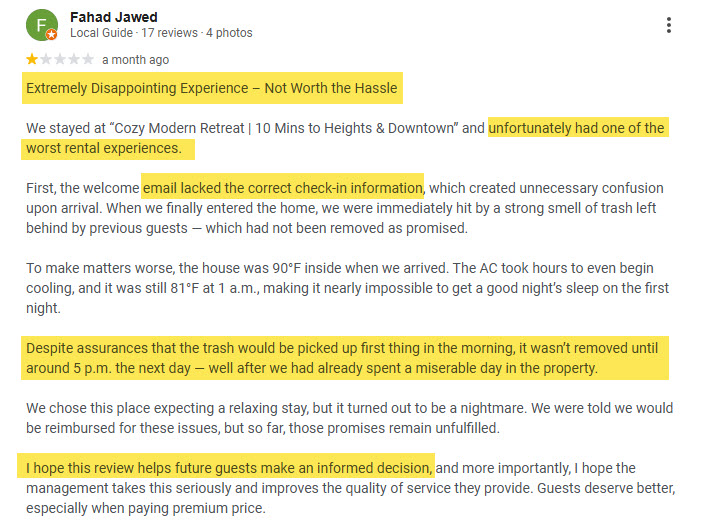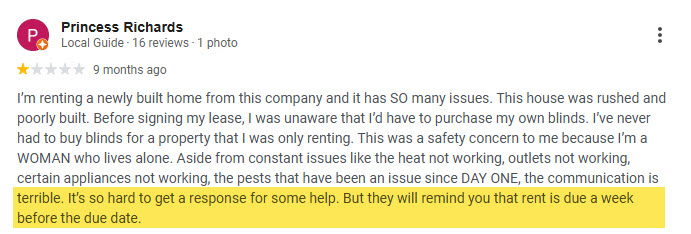Owning a short-term rental can be exciting and lucrative, but it comes with its fair share of challenges. Between guest communication, cleaning schedules, maintenance calls, pricing strategies, and staying compliant with local regulations, managing an Airbnb or vacation rental can quickly become a full-time job. That’s why many property owners turn to professional management companies to handle the heavy lifting.
The question is: how do you choose the right Airbnb property management company in Houston? and How can you avoid getting burned by companies like Bayou City Luxe. With dozens of options in most major markets, picking the wrong partner can mean lost revenue, bad guest experiences, or unexpected fees. The right one, however, can turn your rental into a true passive income stream.
Below, we’ll break down everything you need to consider when evaluating short-term rental management companies, from the services they provide to their reputation, pricing, and fit for your property.
1️⃣ Understand What Services You Actually Need
Not all management companies operate the same way. Some are “full-service,” while others are more like co-hosts who only handle a portion of the work. Before you start shopping, ask yourself:
-
Do I want a completely hands-off experience, or am I okay handling some tasks myself?
-
Am I comfortable managing cleaning staff or maintenance contractors, or would I rather outsource that entirely?
-
Do I just need help with guest communication and dynamic pricing, or do I want everything managed, including permits, taxes, and furnishing?
Types of Management Models:
-
Full-Service Management – Handles everything: guest messaging, listings, cleaning, maintenance, restocking, pricing, permits, and taxes. Best for owners who want passive income.
-
Partial / Co-Hosting – Covers some functions like bookings and guest communication, but leaves cleaning and maintenance to you. Usually cheaper but more work for the owner.
-
Specialized Services – Some companies only do dynamic pricing, design, or cleaning. These may be add-ons if you don’t need a full manager.
Start by identifying your ideal level of involvement. That way, you can rule out companies that don’t align with your needs.
2️⃣ Compare Fee Structures and Pricing Models
Pricing is one of the biggest differentiators among management companies. Most charge a percentage of booking revenue, but the numbers vary widely:
-
Full-service management: 20%–40% of booking revenue.
-
Partial / co-hosting services: 10%–20%.
-
Flat fee models: A fixed monthly cost, regardless of revenue.
-
Hybrid models: A mix of flat fees plus add-on charges for services like cleaning or maintenance.
When comparing pricing, don’t just look at the headline commission rate. Ask:
-
Are cleaning fees charged to the guest or to me?
-
What’s included in the management fee (cleaning coordination, restocking, marketing)?
-
Are there hidden charges for maintenance calls, linens, or inspections?
-
What are the exit fees or penalties if I decide to leave?
The cheapest option is rarely the best. The I learned this the hard way with Bayou City Luxe. The goal is to maximize net income (what you keep after expenses) and actually get paid, not just minimize management costs.
3️⃣ Evaluate Marketing and Technology Capabilities
An Airbnb management company’s ability to market your property directly affects your occupancy and nightly rates. Ask how they:
-
Create listings: Do they use professional photography, staging, and compelling descriptions?
-
Distribute listings: Do they list on multiple platforms (Airbnb, Vrbo, Booking.com, Expedia), or just Airbnb?
-
Handle pricing: Do they use dynamic pricing tools that adjust rates daily based on demand, seasonality, and local events?
-
Track performance: Do they provide an owner dashboard where you can see bookings, revenue, expenses, and guest reviews?
A company that relies on outdated pricing or basic photos won’t maximize your property’s potential. Look for one that uses data-driven tools and presents your rental as a premium experience.
4️⃣ Look Closely at Cleaning and Maintenance
Guest reviews often boil down to two things: cleanliness and communication. Even a luxury property will get poor ratings if it isn’t spotless.
When evaluating a company, ask:
-
Do they use dedicated cleaning teams or just third-party contractors?
-
How do they ensure quality control (checklists, inspections, photo verification)?
-
How quickly can they respond to a broken appliance, plumbing issue, or pest problem?
-
Do they offer preventive maintenance (HVAC service, pest control), or only fix issues when guests complain?
The right company should have reliable cleaning and maintenance systems that protect your property and keep guests happy.
5️⃣ Research Reputation and Track Record
A management company can look great on paper, but reviews tell the real story. Search for:
-
Guest reviews on Airbnb and other platforms: Are properties under their management consistently highly rated (4.7 stars and up)?
-
Owner testimonials: Do property owners report good communication, fair fees, and strong returns?
-
Company reviews on Google, Trustpilot, Yelp, or local forums: Are there complaints about hidden charges, poor communication, or contract disputes?
It’s also wise to ask the company directly for references from other owners, especially those with properties similar to yours. I wish I would have been more diligent in my experience with Bayou City Luxe. This website was created to help others avoid a bad property management situation.
6️⃣ Check Contracts and Exit Terms Carefully
One of the most overlooked parts of choosing a management company is the contract. Some companies lock owners into long agreements with high exit fees. Others offer more flexibility.
Key questions to ask before signing:
-
What is the minimum contract length?
-
How much notice is required to terminate?
-
What happens to my listings, photos, and guest reviews if I leave?
-
Are there penalties for early termination?
Ideally, you want a company confident enough in its performance that it doesn’t need to trap you with restrictive terms.
7️⃣ Consider Local Expertise and Compliance
Short-term rental rules vary widely by city. Some cities require permits, occupancy taxes, or safety inspections. A good management company should:
-
Stay up to date with local regulations.
-
Handle permitting and licensing for you.
-
Collect and remit occupancy taxes properly.
-
Ensure your property complies with fire, safety, and insurance requirements.
Working with a company that understands your market can save you from costly fines and headaches.
8️⃣ Assess Communication and Support
Strong communication makes the difference between a satisfied guest and a one-star review. Ask about:
-
Guest response times: Do they guarantee replies within an hour, day, or less?
-
Owner communication: How often do they update you? Do you get a dedicated account manager or a call center experience?
-
Emergency handling: Do they provide 24/7 guest support, or only during business hours?
Both you and your guests should feel supported at all times.
9️⃣ Match Company Strengths to Your Property
Not every management company is right for every property. Some specialize in luxury homes, while others do best with apartments in busy city centers. Some focus on high-volume budget rentals, while others cater to longer mid-term stays.
When interviewing companies, ask:
-
What types of properties do they specialize in?
-
How many properties like yours do they currently manage?
-
Can they show examples of similar listings and their performance?
Choosing a company that understands your property type increases your odds of success.
🔟 Trust Your Gut
Finally, after analyzing the numbers and reviewing contracts, trust your instincts. Did the company communicate clearly, answer your questions honestly, and make you feel confident? Or did they dodge questions and overpromise results?
A management company is a partner in your investment. If you don’t feel comfortable with them upfront, it’s unlikely to improve later. My gut was telling me something was wrong with Bayou City Luxe from the start & I choose to ignore my gut. Learn from my mistakes!
💭 Final Thoughts
Picking the right Airbnb or short-term rental management company can make the difference between a stressful side hustle and a profitable, mostly passive investment. The key is to:
-
Define your needs clearly.
-
Compare fees and services beyond just the headline percentage.
-
Look for strong marketing, cleaning, and guest support systems.
-
Research reputation, read contracts carefully, and demand transparency.
-
Choose a company whose strengths align with your property and goals.
A great management company should feel like a trusted partner—one that maximizes your income, protects your property, and gives guests a five-star experience.


